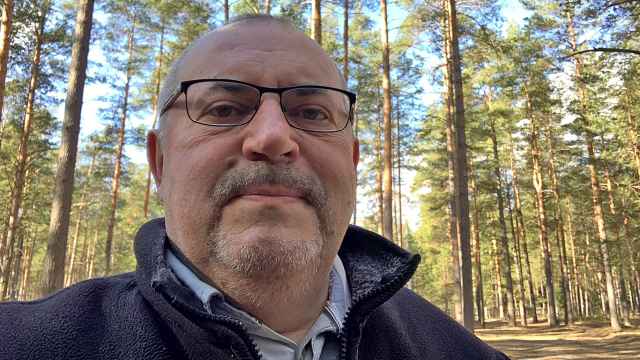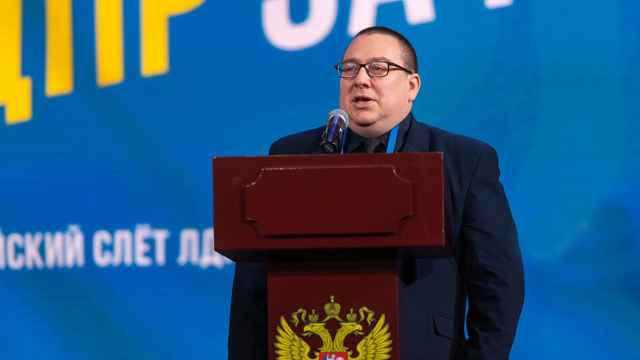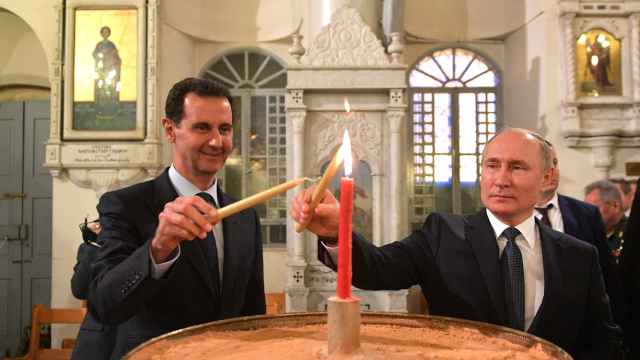| About this blog
|
| Window on Eurasia covers current events in Russia and the nations of the former Soviet Union, with a focus on issues of ethnicity and religion. The issues covered are often not those written about on the front pages of newspapers. Instead, the articles in the Windows series focus on those issues that either have not been much discussed or provide an approach to stories that have been. Frequent topics include civil rights, radicalism, Russian Islam, the Russian Orthodox Church, and events in the North Caucasus, among others.
Author Paul Goble is a longtime specialist on ethnic and religious questions in Eurasia. Most recently, he was director of research and publications at the Azerbaijan Diplomatic Academy. He has served in various capacities in the U.S. State Department, the Central Intelligence Agency and the International Broadcasting Bureau as well as at the Voice of America and Radio Free Europe/Radio Liberty and at the Carnegie Endowment for International Peace. He writes frequently on ethnic and religious issues and has edited five volumes on ethnicity and religion in the former Soviet space. |
VIENNA &mdash The Russian and American media are currently filled with stories about efforts by Moscow and Washington to reduce the size of their nuclear arsenals and prevent the proliferation of nuclear testing. But neither is focusing on "a no less important" issue: the resettlement of ordinary Russians who were exposed to radiation during the Cold War.
Tragically, according to a review of the situation conducted by the head of the Citizen Foundation Maxim Shingarkin, addressing such tasks, which are important "from a social, ecological and moral point of view," is being blocked by Rosatom, the very agency of the Russian government charged with the exposure.
Despite presidential decrees and a much ballyhooed program for resettlement, Rosatom has done everything it can to prevent some 4,000 people in Muslyumovo exposed to radiation &mdash either because of nuclear accidents at the Mayak plutonium plant in the 1950s or because of the release of radioactive materials into the environment more generally &mdash from moving.
"Under the leadership of Sergei Kiriyenko," Shingarkin says, "Rosatom stoutly opposes the departure of people from Muslyumovo," a Chelyabinsk village that all studies have shown is too radioactive for people to remain and where every other resident has radiation-produced genetic abnormalities.
The Mayak nuclear weapons facility has been operating since 1947. During certain periods in the past, radioactive wastes from the factory were simply thrown into the Techa River, which remains radioactive. And in 1957, there was an accident at Mayak that resulted in the nuclear contamination of Muslyumovo and the surrounding region.
The federal government moved approximately 8,000 people out of this region, but more than 4,000 more have not been resettled &mdash despite Moscow having appropriated the funds to do so, Vladimir Putin ordering it and Russian officials regularly pointing to this resettlement effort as a hallmark of Moscow's commitment to overcoming the past.
In fact, in 2005, the director of Mayak was convicted of violating the resettlement law, but a year later, he was amnestied "in connection with the centenary of the State Duma," despite the documentation by ecologists that the drinking water in Muslyumovo is radioactive. Kiriyenko for his part "cynically declared" that his subordinate was innocent of all charges.
In reporting on this scandalous situation, the Free Lance Bureau (FLB) portal says "ecologists are certain that a major medical experiment is being carried out in Muslyumovo. People every year are examined but as a rule they are not told the exact nature of their illnesses and are not sent anywhere for treatment."
Eight years ago, the FLB article notes, the Federal Administration of Medical-Biological and Extreme Problems in the health ministry said "the residents in Muslyumovo form a unique cohort," a group that represents "worldwide importance for the assessment of the size of the risk or carcinogenic and genetic consequences of chronic exposure to radiation."
To the extent that attitude continues, it would provide a possible explanation for Rosatom's current stance. (Other explanations, of course, suggest Rosatom's involvement as well, including the misuse of funds set aside for radiation victims or official indifference to the suffering of the residents of Muslyumovo who have yet to find their voice.)
That may be about to change. Shingarkin, in his capacity as a member of the expert's council for the Human Rights Ombudsman of the Russian Federation, this week sent an open letter to Vladimir Lukin in which he poses 20 questions "about the mass violations of the rights of citizens in Muslyumovo."
The questions, which reflect Shingarkin's own investigation into what is taking place among the residents of the Urals village, are devastating in their portrait not only of official illegality but also of the indifference of far too many to these victims of a nuclear program they bore no responsibility for.
If Lukin, either on his own or under pressure from other human rights organizations, takes up this cause, that should lead at a minimum to a decision by Russian and American arms control negotiators to put the fate of Muslyumovo and its people on the agenda of their talks.
A Message from The Moscow Times:
Dear readers,
We are facing unprecedented challenges. Russia's Prosecutor General's Office has designated The Moscow Times as an "undesirable" organization, criminalizing our work and putting our staff at risk of prosecution. This follows our earlier unjust labeling as a "foreign agent."
These actions are direct attempts to silence independent journalism in Russia. The authorities claim our work "discredits the decisions of the Russian leadership." We see things differently: we strive to provide accurate, unbiased reporting on Russia.
We, the journalists of The Moscow Times, refuse to be silenced. But to continue our work, we need your help.
Your support, no matter how small, makes a world of difference. If you can, please support us monthly starting from just $2. It's quick to set up, and every contribution makes a significant impact.
By supporting The Moscow Times, you're defending open, independent journalism in the face of repression. Thank you for standing with us.
Remind me later.






